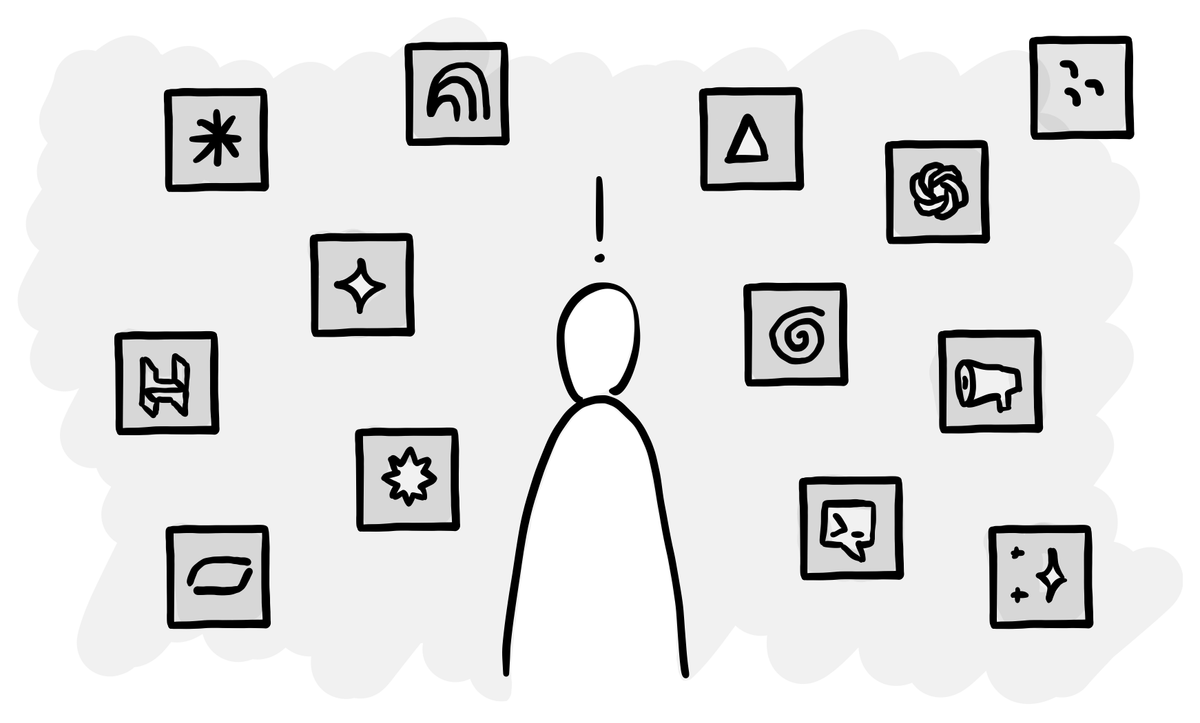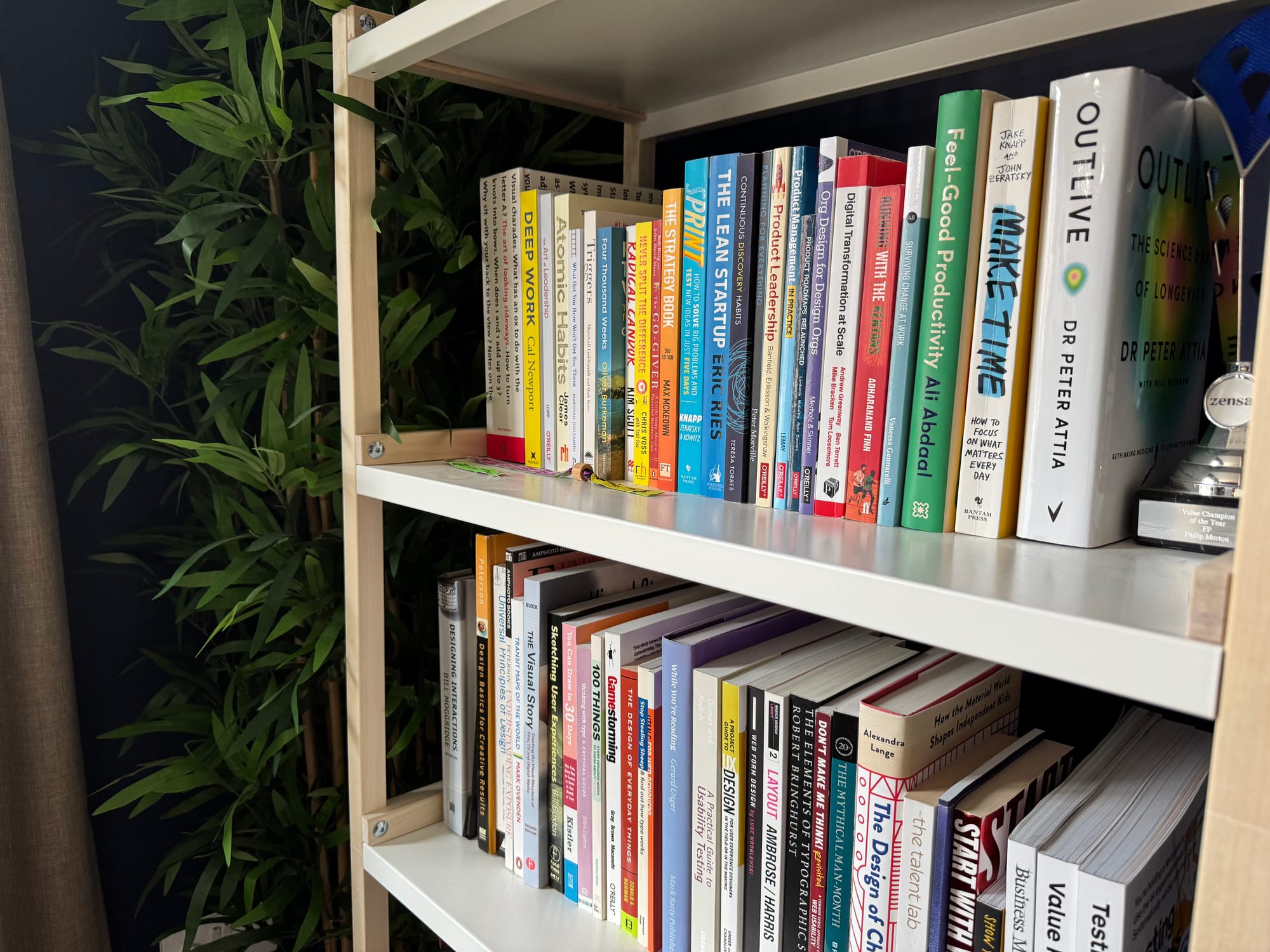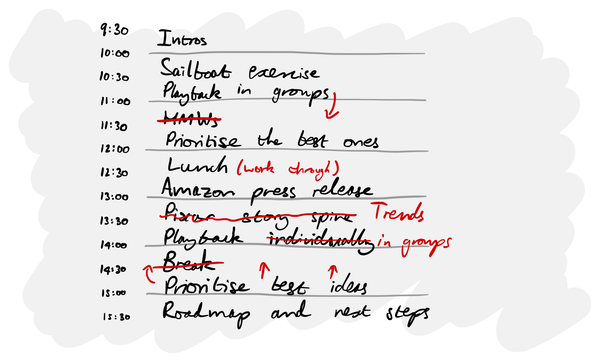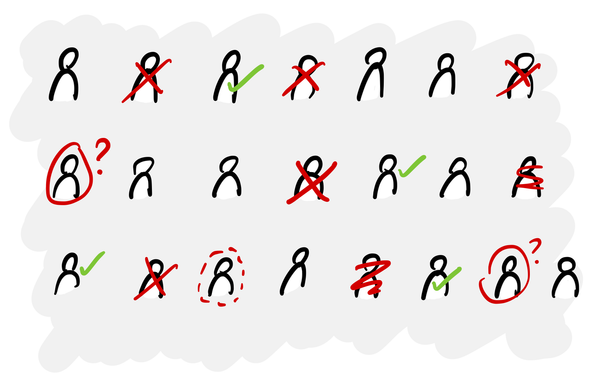UX research teams should start with general-purpose AI tools
Most people underestimate how much can be done with a general-purpose tool and overestimate how useful specialist tools are.

Every research team is scrambling to work out how to integrate AI into their ways-of-working. There’s a generational opportunity to improve methods of practice and a lot of pressure from leadership to do something with AI.
Research teams already spend a fifth of their budget on tooling and AI is surely set to increase that. But what types of tools should you invest in?
The temptation of specialist tools
There are so many AI tools for research that it makes your head spin evaluating them all, and new ones are popping up every week. When you’re exploring how AI can improve your research process, it’s tempting to get sucked in by all the specialist tools: AI moderation tools, synthetic users and personas, predictive attention heatmaps and so on.
These are the kind of tools that get people (especially leadership) excited about AI, but there are a few things to keep in mind:
- Risk of picking the wrong tool: AI is moving so fast that specialist tools could become obsolete within months. You could spend months on procurement, training and integration, only to find that a better solution has emerged by the time you’re fully up and running.
- Cost: Buying multiple separate tools for specific use cases will quickly become expensive, putting even more burden on research budgets.
- Performance and quality: These tools don’t always deliver on what they promise, at least not yet.
Instead, research teams should start with general-purpose tools like ChatGPT, Claude and NotebookLM. Only when these don’t cover your use cases should you invest in specialist tools.
Why general-purpose tools are such a good fit for UX research
Most research tasks are surprisingly well-suited to general-purpose AI tools because they involve text-based inputs and outputs:
Writing things...
- Discussion guides and research plans
- Recruitment criteria
- Survey questions
- Reports
Analysing data...
- Interview transcripts
- Quant survey data
- Analytics and MI
Researching the web...
- Competitor analysis
- Social listening
- Industry trends
You can do all of these with a general-purpose tool like ChatGPT for £25/month/user and there’s a good chance that your organisation might even foot the bill (rather than it coming out of your team’s research budget).
Tools like ChatGPT and Claude also have huge resources behind them and improve rapidly, whereas smaller specialist tools might struggle to keep up.
Making general-purpose tools work for your team
The main challenge with this approach is that success depends on your ability to create, share and use good prompts. You can’t just give people ChatGPT and expect great results – there’s a lot of work to do upfront:
- Identifying your most common and repetitive tasks
- Writing and refining prompts for each one
- Creating custom GPTs or projects with relevant context
- Building a shared library that everyone can use
It’s a significant investment, but probably no more than the time you’d spend on procurement and training for specialist tools. And once you create a prompt to analyse interview transcripts or write a discussion guide, that prompt will improve over time as the underlying models get better, without you having to do anything.
Where specialist tools are still necessary
There are a few tasks where general-purpose tools hit their limits when the input or output isn’t text-based:
- Live moderation of interviews, since ChatGPT can’t moderate a video call with someone (yet).
- Video analysis that goes beyond the (often flawed) transcript.
- Video output like an avatar which talks to you as if they are a particular persona.
- Advanced prototyping where something like Lovable or Bolt are much more capable.
- Journey mapping when you want to combine data from multiple sources.
Start with general-purpose tools
Given how many use cases you can cover with a general-purpose tools, it makes sense to start with these and only move on to specialist tools once you’ve exhausted the more broadly applicable ones.
Get your team permission to use tools like ChatGPT and NotebookLM, then map out your top use cases. Build prompts, custom GPTs and shared projects for your most common tasks and see how far you can get. Most people underestimate how much can be done with a general-purpose tool and overestimate how useful specialist tools are.
This approach gives you flexibility, keeps costs down and reduces the risk of picking the wrong tool in a rapidly changing industry. You can always add specialist tools later, but starting with the basics will give you a solid foundation and help you understand where the real gaps are.
The goal isn’t to avoid specialist tools forever, but to be strategic about when and why you adopt them.





